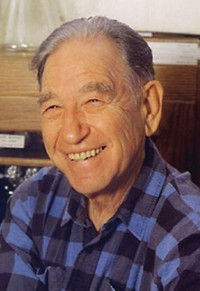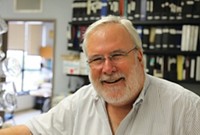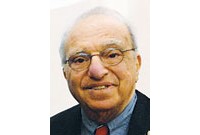Advertisement
Grab your lab coat. Let's get started
Welcome!
Welcome!
Create an account below to get 6 C&EN articles per month, receive newsletters and more - all free.
It seems this is your first time logging in online. Please enter the following information to continue.
As an ACS member you automatically get access to this site. All we need is few more details to create your reading experience.
Not you? Sign in with a different account.
Not you? Sign in with a different account.
ERROR 1
ERROR 1
ERROR 2
ERROR 2
ERROR 2
ERROR 2
ERROR 2
Password and Confirm password must match.
If you have an ACS member number, please enter it here so we can link this account to your membership. (optional)
ERROR 2
ACS values your privacy. By submitting your information, you are gaining access to C&EN and subscribing to our weekly newsletter. We use the information you provide to make your reading experience better, and we will never sell your data to third party members.
Biological Chemistry
Roger E. Koeppe
by Susan J. Ainsworth
July 20, 2009
| A version of this story appeared in
Volume 87, Issue 29
Roger E. Koeppe, 87, emeritus professor of biochemistry at Oklahoma State University, died of pancreatic cancer on May 16 in Stillwater, Okla.
Born in China to American missionary parents, he earned a B.S. in chemistry in 1944 from Hope College, in Holland, Mich., and a Ph.D. from the University of Illinois, Urbana-Champaign, in 1950, working on amino acid metabolism with William C. Rose.
After postdoctoral work with Rose and with John L. Wood at the University of Tennessee, Memphis, he joined the faculty of University of Tennessee Medical School, Memphis, in 1952. He moved to the faculty at Oklahoma State University in 1959 and served as head of the department of biochemistry from 1963 until his retirement in 1990.
Koeppe's research focused on intermediary metabolism and its control for normal brain function. He found that a small metabolically active pool of glutamine in mammalian brain is formed from glutamic acid, which is not in rapid equilibrium with tissue glutamic acid. The results help to explain the use of glucose, pyruvate, and fatty acids as alternative energy sources in the brain.
He was named 1989 Oklahoma Scientist of the Year by the Oklahoma Academy of Science. An emeritus member, he joined ACS in 1947.
Koeppe is survived by his wife, Norma; five children; 11 grandchildren; and four great-grandchildren.
Susan J. Ainsworth writes obituaries. Obituary notices may be sent to s_ainsworth@acs.org and should include a detailed educational and professional history.






Join the conversation
Contact the reporter
Submit a Letter to the Editor for publication
Engage with us on Twitter